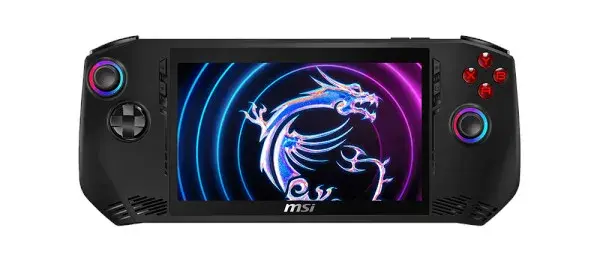- cross-posted to:
- pcgaming@lemmy.ca
- cross-posted to:
- pcgaming@lemmy.ca
Blows my mind that none of these competing devices include touchpads. I swear half the games I play use the touchpads, whether it’s FPS-style games or something like Rimworld or Gunpoint.
On the flip side, I’ve never used the touchpads in a game outside of Aperture Desk Job.
Same, I keep running my fingers over then to get the rumble I’m missing, but otherwise have not used them at all
deleted by creator
I don’t think the touch pads are adding much to the form factor. All the other handhelds just have blank spaces where a touchpad could fit.
deleted by creator
I think what would be cool is if you’re able to remove the sticks (especially the right one) and replace them with the touchpads without any hassle. Like a modular unit. And if the stick drifts, then just get a new one and pluck it back in.
That’s a pretty competitive machine. Unfortunately no Linux support is a deal breaker for me.
Spec-wise yes but I can assure you there is nothing near the polishment or the software support of the Deck. There is a reason why SD is so popular.
deleted by creator
I swear I’ll be dead before they figure out why they haven’t managed to take on the SteamDecks success. Put SteamOS on it. Put trackpads on it. What really separates this from the other devices? Slightly different hardware?
I just really like the track pads on the SD. They’re too useful to not have.
The thing that the Deck does better than any other handheld is having both sticks, d-pad and buttons aligned in a row, that makes any combination of them comfortable to use, weird that nobody copies that.
Because that only “works” because of how chonky the steam deck is.
The issue isn’t even really the positioning. The issue is that you tend to hold a switch (or a gameboy or a wing-less PSP/Vita) with a “pinch” grip. so you actually have very little range of motion with your thumb because you need it to stabilize the handheld itself.
Whereas the steam deck is kind of heavy and bulky. so rather than pinch grip it, you tend to hold it more like a closed book (if that makes sense. Which means the deck is mostly supported by your stretched out fingers and your thumb more or less moves freely.
For another handheld to do that you would either need it to be a lot wider (less portable), heavier (no point), or have built in wings (which is what most of us bought for our Vita) which similarly kills the portability.
For what its worth, checking out a friend’s GPD when I was still considering it a few years back had the same benefits.
This is the best summary I could come up with:
But compared to being AMD Ryzen powered, the Claw A1M makes use of an Intel Core Ultra 7 155H “Meteor Lake” SoC that launched last month and found in various laptop designs to date.
The MSI Claw A1M ships with Microsoft Windows 11 Home by default with no option for Linux.
It will be interesting to see just how well the MSI Claw A1M works under Linux and if there is any hardware support quirks or other issues.
This Intel Core Ultra 7 powered gaming handheld has a 7-inch 1080p display, 16GB of LPDDR5 system memory, up to 1TB of NVMe SSD storage, 53 Whr battery capacity, “revolutionary” cooling, Thunderbolt 4 support, and otherwise looks quite similar to the other recent gaming handheld devices.
The MSI Claw A1M is said to have a $699 USD starting price when it begins hitting retail channels in the near future.
For those curious yesterday I ran some rough benchmarks of the Core Ultra 7 155H versus AMD Ryzen Z1 Extreme performance.
The original article contains 234 words, the summary contains 168 words. Saved 28%. I’m a bot and I’m open source!
Battery life is probably gonna be real bad. Dave2D said the lowest cTDP the APU can do is 15W, up to 30W at the highest. That would drain the battery in no time.
Also have you seen the cooling system? 4 heatpipes and two fans, this is designed to draw loads of power. In my opinion misses the point of the formfactor.
No real competitor to the deck.







